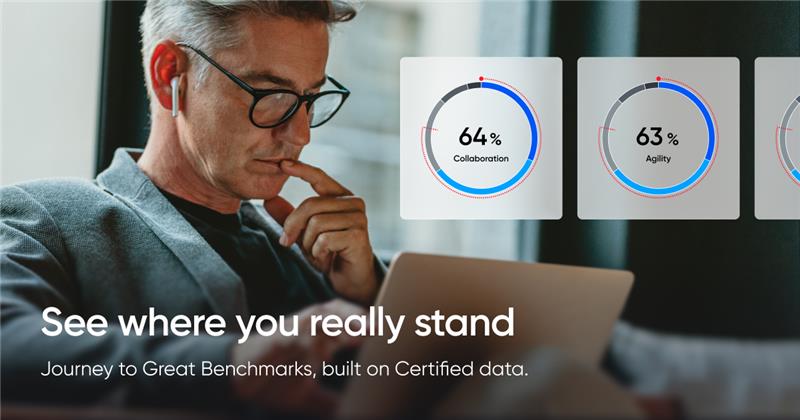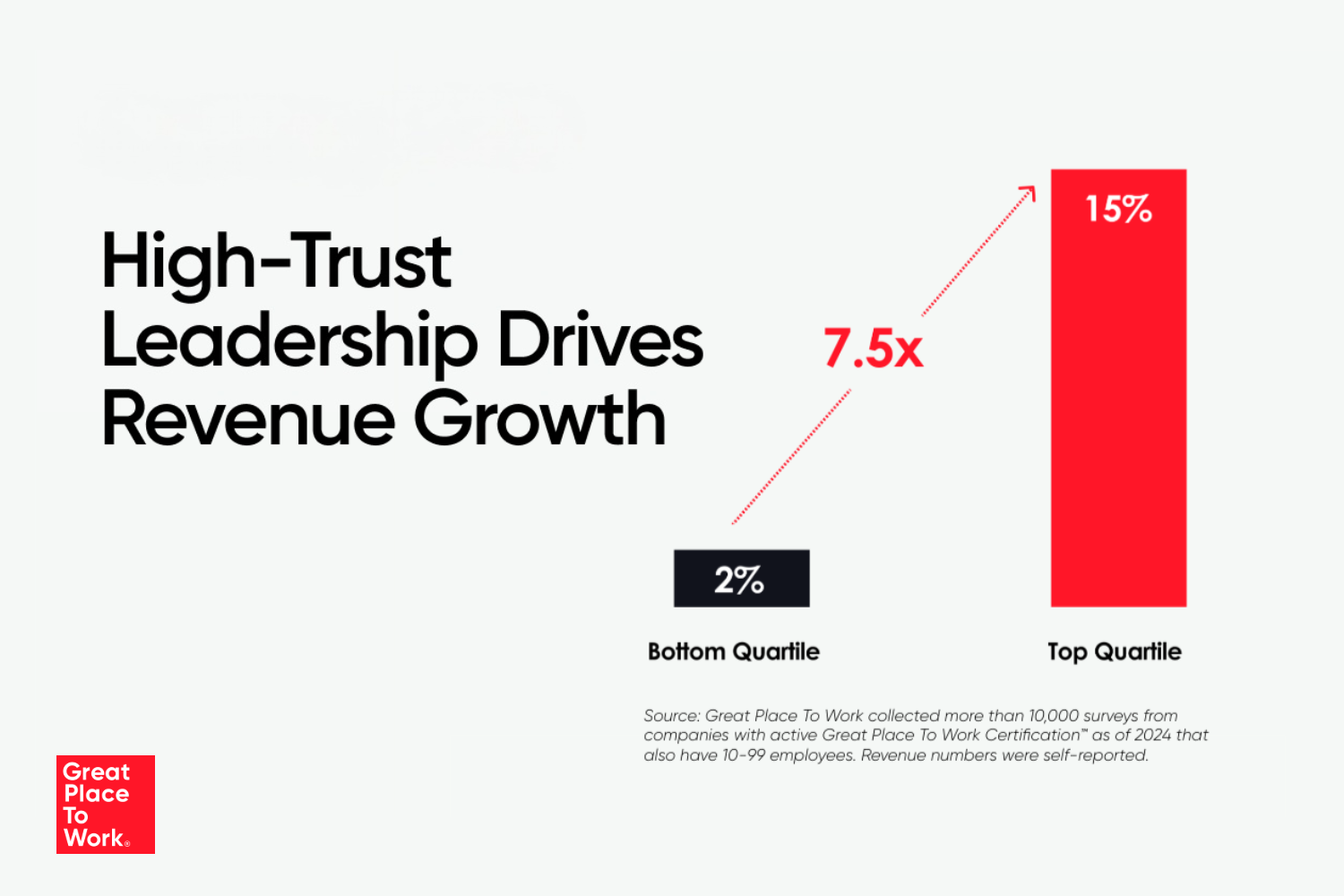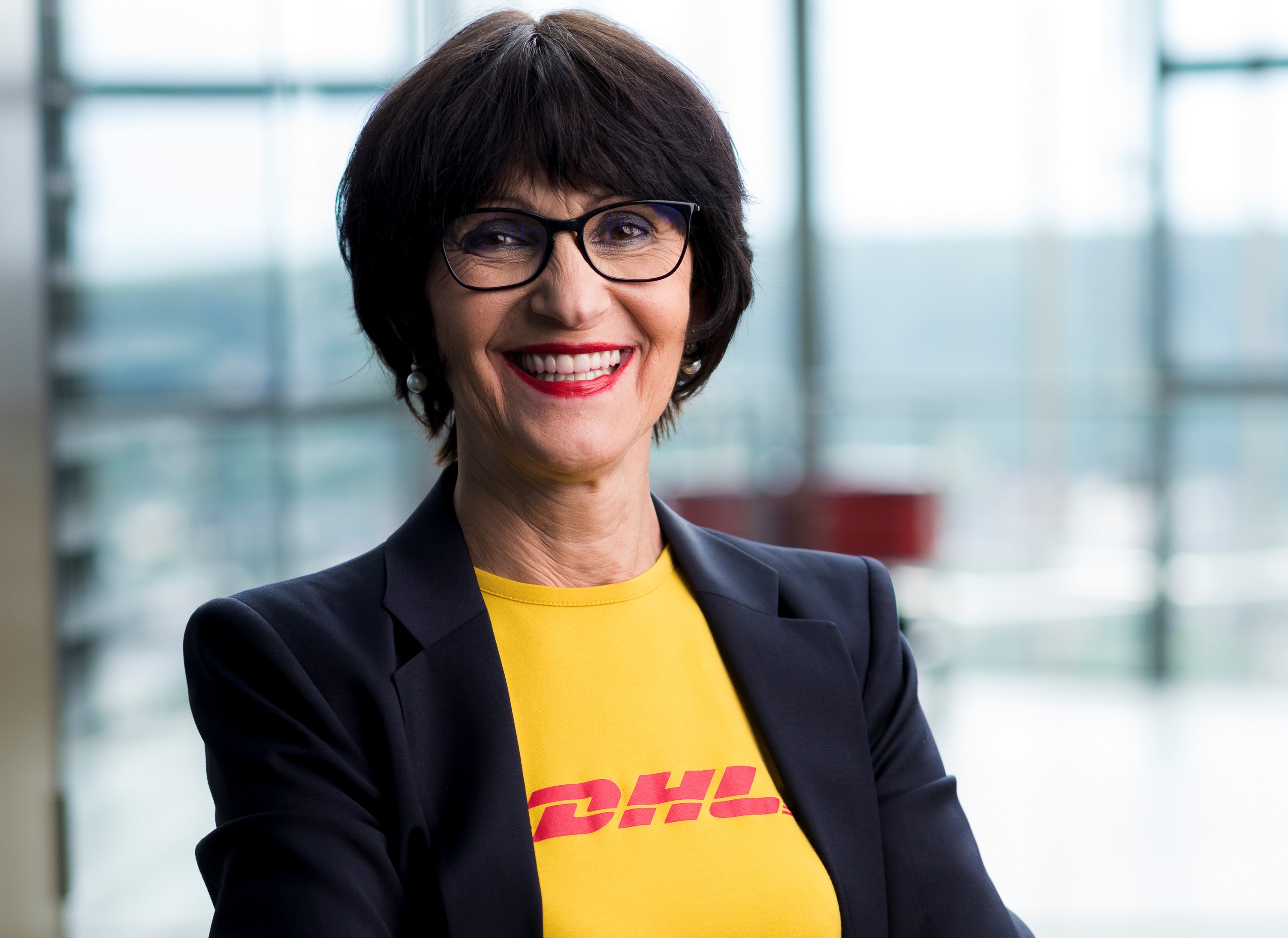Best Workplaces, Employee Engagement, Gen Z, Generations at Work, Recruiting
How this young cohort of workers is looking to see if you’re investing in their growth.
Gen Z workers are the latest generation of employees to mystify well-meaning managers. The demographic, defined as those born between 1997 and 2012, is steadily increasing its influence in the workplace as more and more young people join the labor force.
These outspoken newcomers are at the forefront of rising activism in the workplace. They “want it all”—and they’re willing to take action if they feel their needs aren’t met.
During the Great Resignation and still today, business leaders have struggled to retain Gen Z employees. Many of these young workers left for new jobs, seeking better pay, more opportunities to develop their skills, and less toxicity in the workplace.
Serving the unique needs of Gen Z is something great workplaces are taking very seriously.
“Like most employers today, we have to consider that we have multiple generations in our workplace,” says James Colino, director of talent acquisition at Sheetz. The convenience store chain knows a thing or two about engaging with younger employees—it’s the No. 52 large company on the Fortune Best Workplaces for Millennials™ list for 2022.
“That requires sensitivity in how we market, how we recruit and how we manage our work family,” he says.
For Colino, it all starts with thinking about Gen Z as its own demographic—not lumping them in with millennials—and addressing their unique needs.
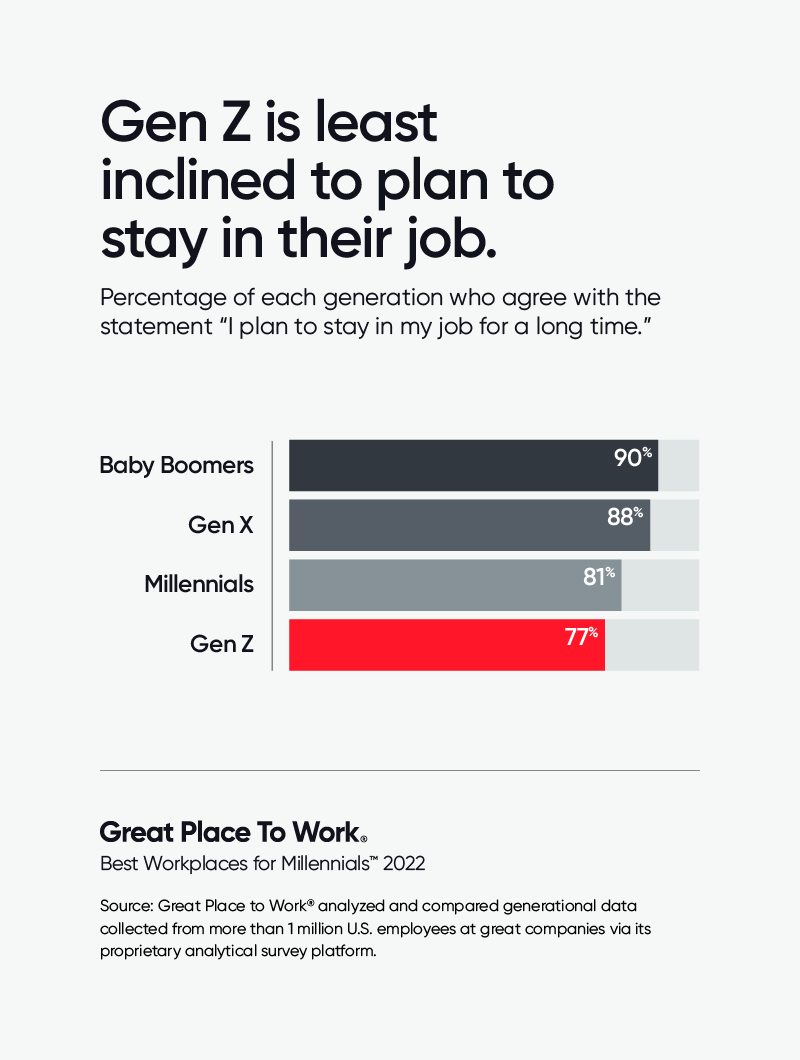
What’s missing for Gen Z
Gen Z workers are leaving their jobs for a reason. According to Great Place To Work® research, Gen Z, like their millennial colleagues, are having a demonstrably worse experience in the workplace compared with older generations. And out of all the generations, Gen Z is the least inclined to want to stay in their jobs.
Driving the Gen Z exodus is a lack of purpose or meaning in their work. Gen Z workers who agree that their work has “special meaning” are three times as likely to stay with their organization, per Great Place To Work data. That’s crucial, because Gen Z workers who say they want to stay with their organization a long time are also three times more likely to recommend their organization to others.
This creates a virtuous cycle, where young employees not only want to stay, but are helping recruit for the organization, recommending the company to friends and family as a great employer. This is crucial for organizations, since data shows that people often look to someone like themselves for trusted recommendations.
Gen Z workers also join millennials in being less likely than older generations to say they receive a fair share of profits and pay.
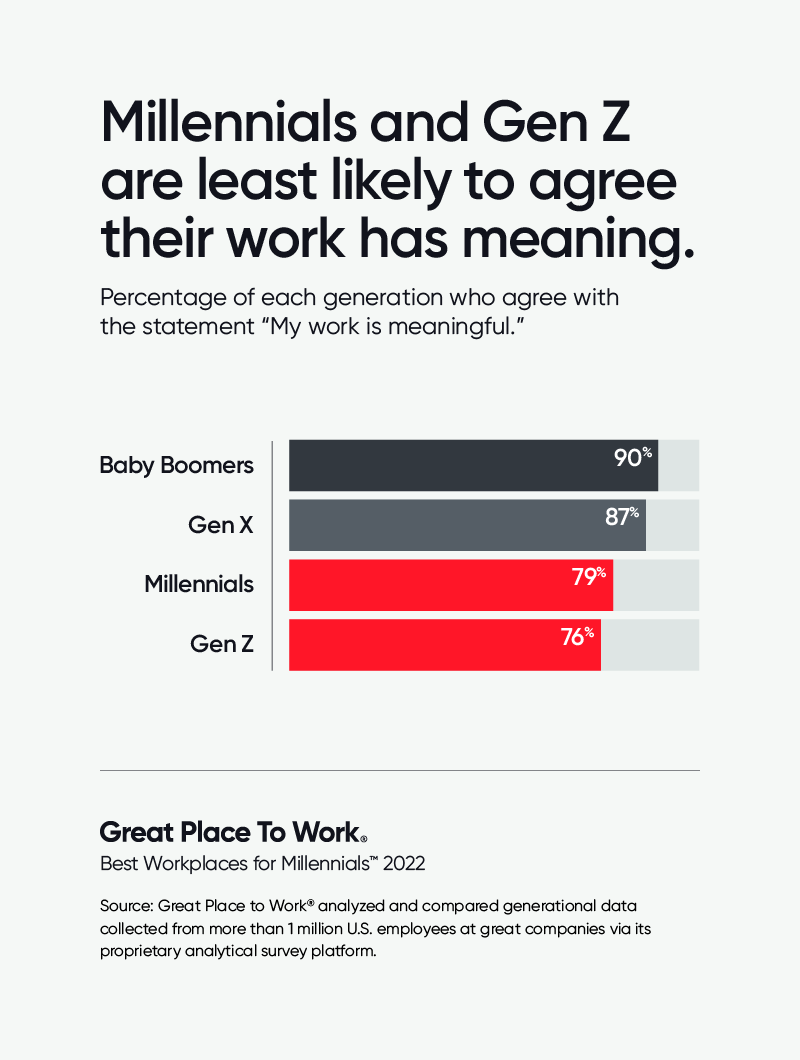
What’s working for Gen Z
There are many ways employers can help younger employees find a home with their organization. Deloitte’s research shows that the top reasons Gen Z workers chose their current job include:
- Work-life balance (32%)
- Learning and development opportunities (29%)
- Higher salaries (24%)
- Positive workplace culture (23%)
Great Place To Work research highlights the aspects of the workplace experience where Gen Z is having a better experience than other generations. In fact, they’re having the strongest experience when it comes to certain aspects of fairness, pride and respect, providing a roadmap for employers to follow. At great workplaces, Gen Z workers feel:
- Colleagues avoid politicking and backstabbing
- Promotions are awarded fairly
- Managers don’t play favorites
- Colleagues quickly adapt to changes
- Management involves workers in decision-making that affects their work
Gen Z also has hefty expectations around diversity, equity, inclusion and belonging (DEIB).
Gen Z in the U.S. is more diverse than any generation before it, per data from Pew Research. One in five Gen Zers identify as LGBTQIA, and younger workers are more likely to expect robust DEI&B programs in the workplace.
For Colino, it’s perfectly natural for Gen Z to have different needs than Baby Boomers, Gen X, or even millennial colleagues.
“Every generation is a product of the environment they grew up in,” he says. “This generation has been subjected to political, privacy, technological and gender issues that have shaped how they think. In working with this generation, you can’t help but notice that they think and act differently than those who came before them.”
That doesn’t mean giving them a free pass on performance, Colino explains. Instead, it requires that leaders take the extra time to acknowledge differences, be inclusive and find solutions that work for customers and employees.
How to engage & retain Gen Z employees
Here are some of Colino’s top recommendations for employers on engaging Gen Z in the workplace:
1. Create a nurturing environment.
“They need someone to acknowledge that, purely based on the number of years they’ve been alive, they might not be fully equipped to handle all the situations they’ll encounter in a busy store,” says Colino. “It’s more than training; it’s a mentorship approach that ensures they have a positive experience.”
2. Develop your listening skills.
Every generation wants to be heard, but for Gen Z it has even greater significance.
“I think Gen Z is one of the more vocal generations,” says Colino. “They’re not afraid to speak up so I think they really appreciate that we’re asking for input.”
3. Build in opportunities for fun.
Younger workers need that flexibility to embrace their childlike side, says Colino, especially when workers might still be involved in school. These early work experiences will influence whether workers will return to jobs in your sector.
“It’s hard on a manager who has to schedule around flexibility, but our industry has to figure out how to keep this critical segment of talent excited,” he says.
If workers see your industry as a buzzkill, they won’t stick around to become the leaders of tomorrow.
4. Think about targeted benefits for education.
Sheetz has increased its tuition reimbursement program to the maximum amount allowed by the IRS.
“We also expanded our partnerships with online universities to ensure that all of our employees, no matter where they’re located, can continue their education,” says Colino.
5. Take time to learn more about Gen Z as a whole.
Colino’s last bit of advice: Invest in learning more about Gen Z as a macro concept.
“I don’t think companies fully understand the Gen Z workforce yet; they’re just barely entering the workplace,” he says.
Companies that are willing to listen have an invaluable opportunity to bring in diverse viewpoints and build a talent pipeline to sustain their growth for years to come.
Show Gen Z your workplace is one they can trust
Gen Z employees want to work for ethical, flexible, and forward-thinking workplaces. Get Great Place To Work Certified™ to prove to Gen Z that your company is willing to meet them where they are.




